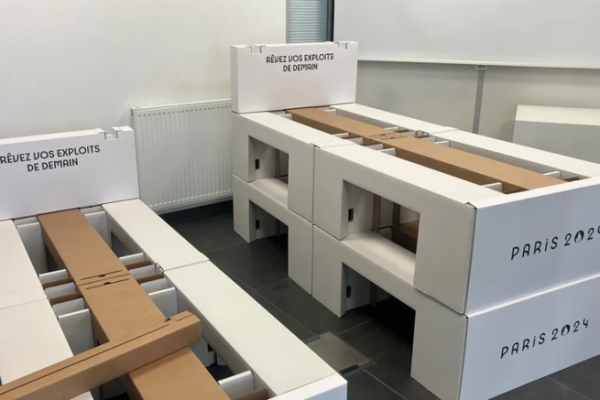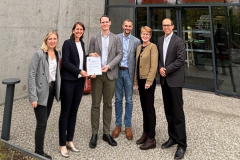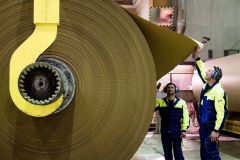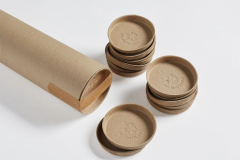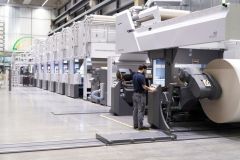The Paris 2024 Olympic Games have not only left their mark on sport, but also on the cardboard industry. In the Ardennes, Smurfit Westrock recycles the 17,000 cardboard beds used by the athletes, giving new life to this ephemeral material. Focus on the stages of this unprecedented recycling process and its implications for the packaging industry.
The cardboard beds, compacted and transported from the Olympic Village, arrive in approximately one-ton bales at the Smurfit Westrock plant in Sault-lès-Rethel. The box springs, designed without glue or staples, lend themselves perfectly to this recycling process, with high-quality fibers that are then passed through a pulper to be transformed into paper. The latter will be used to manufacture corrugated cardboard.
Smurfit Westrock's facilities in the Ardennes are at the heart of this project. At Rethel, the paper mill converts cardboard into new paper reels, a raw material for the packaging industry. The plant, which has been modernized with the latest equipment such as the Fosber corrugator, guarantees a fast, efficient manufacturing process. The transformation of recycled material into a final product is a testimony to optimized resource management in a circular economy.
Packaging made from recycled Olympic beds is destined for a variety of sectors, including food processing and e-commerce.
Antoine Cailleton, manager of the Smurfit Westrock cardboard plant, explains that these packages can contain wine bottles, food products or even parcels for online orders.
One of the highlights of this operation was the absence of non-recyclable components in the beds. In fact, the 36 bed base components were made exclusively from cardboard, with no glue or plastic parts, thus facilitating recycling. This design choice makes the process more environmentally friendly, in line with the paper and cardboard industry's growing demands for sustainability. In just two months, the 380 tonnes of cardboard from the beds will be fully reused.
